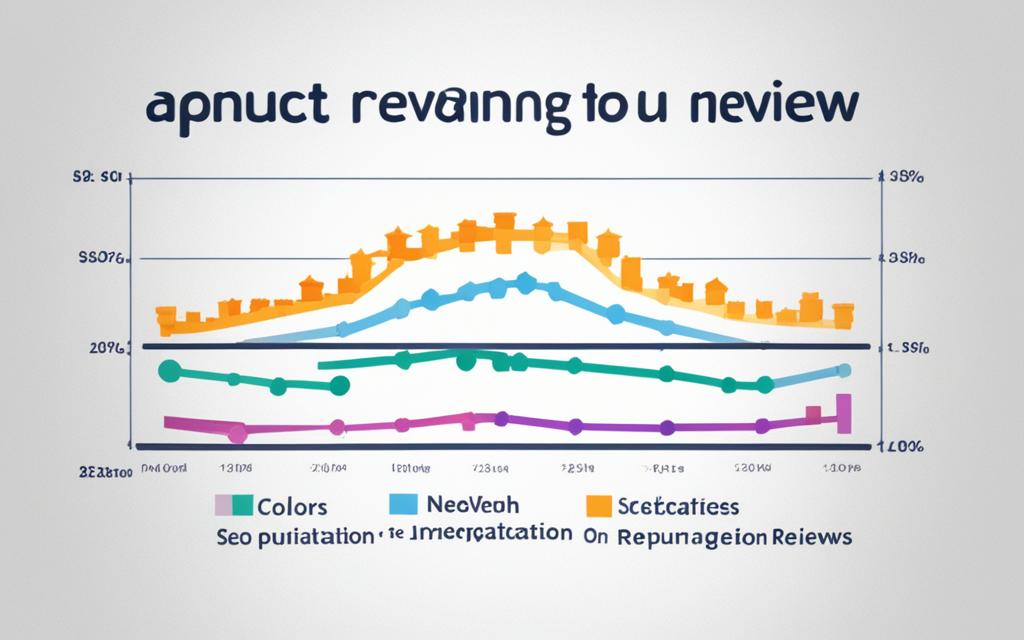Your online reputation has a significant impact on your business’s search engine optimization (SEO) performance. As Google’s algorithms have evolved, they now prioritize quality content over keyword stuffing, and user-generated content, such as online reviews, has become a crucial factor in determining your search engine results page (SERP) rankings. Integrating effective online reputation management strategies with SEO best practices has become essential for businesses to enhance their digital presence and control their brand’s narrative online.
Key Takeaways
- Online reputation management is crucial for SEO performance and digital marketing success.
- Google’s algorithms prioritize quality content and user-generated content, such as reviews, in SERP rankings.
- Integrating ORM and SEO strategies can help businesses enhance their online presence and control their brand’s narrative.
- Negative news and reviews can have a significant impact on customer acquisition and retention.
- Proactive reputation marketing can amplify positive brand perception and drive business growth.
The Changing Landscape of SEO
The world of search engine optimization (SEO) has undergone a remarkable transformation over the years. Gone are the days when businesses could simply “stuff” their websites with keywords in the hopes of ranking higher on search engine results pages (SERPs). Today, Google’s algorithms have evolved, and they now prioritize quality, engaging, and educational content that demonstrates expertise.
From Keyword Stuffing to Quality Content
In the past, the focus was on quantity over quality, as brands would cram their web pages with as many keywords as possible. However, this practice, known as “keyword stuffing,” is now heavily penalized by Google. The search engine giant has made it clear that it rewards businesses that produce and share content that is genuinely valuable to users.
The emphasis has shifted from simply optimizing for SEO trends to creating quality content that resonates with your target audience. Google’s algorithm updates, such as the ones focused on Google algorithm updates, have made it clear that the days of keyword stuffing are long gone.
To succeed in the modern SEO landscape, businesses must focus on creating content that demonstrates their expertise, authority, and trustworthiness (E-A-T) in their respective industries. This means producing informative, engaging, and visually appealing content that addresses the needs and pain points of your target audience.
By prioritizing quality content over keyword stuffing, businesses can establish themselves as thought leaders in their industry and build a strong online presence that resonates with their audience. This, in turn, can lead to improved search engine rankings, increased website traffic, and better conversions.
The Rise of User-Generated Content (UGC) and Online Reviews
The world of search engine optimization (SEO) has undergone a significant transformation, with user-generated content (UGC) and online reviews emerging as crucial factors in shaping search engine rankings. Each user-generated review is treated as new, relevant content by search engines, increasing a business’s search engine results page (SERP) ranking based on recency.
Google’s algorithm now considers both company-created content and UGC, improving a business’s ranking based on the volume and quality of reviews. Moreover, a business’s average star rating directly affects its visibility in search results, regardless of its performance in other SEO trends.
The impact of UGC is particularly evident in industries such as travel and tourism, where nearly 77% of travelers use social media to research destinations before booking. Similarly, in the e-commerce sector, products with strong UGC backing, like customer reviews and photos, see higher conversion rates compared to those without.
| Industry | Impact of UGC |
|---|---|
| Travel and Tourism | 77% of travelers use social media to research destinations before booking |
| E-commerce | Products with strong UGC backing see higher conversion rates |
| Financial Services, Healthcare, Technology, Education, Insurance | UGC provides authentic user testimonials and insights, influencing consumer decision-making |
The integration of UGC in SEO strategies can boost search engine rankings by synergizing authentic content with SEO techniques, demonstrating the importance of user-generated content in online reputation management and digital marketing efforts.
As the landscape evolves, businesses must adapt and leverage the power of user-generated content to enhance their online presence, improve SEO rankings, and build trust with their target audience.
Online Reputation is the New SEO
To achieve and maintain a highly rated website, businesses must ensure they have a high volume of high-quality, positive customer reviews. Online reputation management (ORM) has quickly become a key component of the digital marketing ecosystem, as SEO strategies that do not include ORM are incomplete and less effective.
A basic SEO strategy that fully incorporates ORM will focus on the following areas:
- Building review volume
- Ensuring a strong presence on Google
- Streaming reviews to location pages to improve rankings
Google’s algorithms now heavily focus on quality content instead of keyword stuffing, and user-generated content like online reviews significantly influences search relevance. Each user review is considered new, relevant content, contributing to search engine results page (SERP) ranking based on recency.
| Metric | Impact |
|---|---|
| Volume and quality of user-generated content and backlinking | Impact a business’s ranking |
| High average star ratings | Improve visibility in search results |
| Highly rated sites | Achieve the best search results |
A comprehensive ORM platform can help businesses effectively manage their Google reputation by building review volume, focusing on Google reputation management, and streaming reviews to location pages. Traditional SEO practices like content marketing remain important, but require a high-quality online reputation for better rankings and traffic attraction.
Integrating ORM and SEO Strategies
To effectively enhance your online reputation management (ORM) and SEO strategies, it’s crucial to focus on several key areas. Building a substantial review volume, maintaining a strong presence on Google, and streaming reviews to your location pages can work together to improve your overall online visibility and reputation.
Building Review Volume
Garnering a high volume of positive customer reviews can significantly boost your review volume and overall star ratings. This, in turn, can enhance your visibility in search engine results, as search engines tend to prioritize businesses with a robust review profile. Ensure that your reviews are evenly distributed across platforms like Google, Facebook, and other major review sites to maximize your Google presence.
Focusing on Google
Maintaining a strong presence on Google is crucial for online reputation management. Optimizing your Google My Business listing, responding to reviews, and ensuring accurate location pages can significantly improve your visibility and credibility in search results.
Streaming Reviews to Location Pages
Integrating customer reviews directly onto your location pages can further enhance their search engine optimization. As reviews are crawlable by search engines, this can help improve the rankings of these pages and showcase your positive customer feedback prominently.

By combining these strategies, you can effectively integrate your ORM and SEO efforts, creating a powerful synergy that boosts your online visibility, reputation, and ultimately, your business success.
The Importance of Online Reputation Management
In today’s digital landscape, a business’s online reputation has become paramount. Online reputation management (ORM) is critical for maintaining brand reputation, customer trust, and search engine visibility. Negative reviews, unfavorable comparisons, and bad press can significantly harm a business’s digital presence, making it essential to proactively monitor and manage the information available about the brand online.
Recent studies have shown that 98% of people read online reviews occasionally, while 77% read them frequently or always. Furthermore, most consumers won’t engage with a business or product with less than a 3.3-star rating. Positive reviews can boost a business’s ranking, making it more likely to appear in top search results, especially in local searches.
Effective online reputation management can increase brand awareness by enhancing online presence and search engine visibility, making websites and social media more likely to rank higher in search results. Online reputation is a crucial ranking factor for search engines like Google, demonstrating the significance of maintaining a positive online image.
Managing online reputation can also enhance customer relationships by showing that feedback is valued, thus strengthening customer loyalty. ORM is essential for protecting reputation against negative comments or reviews that could harm brand image and diminish customer confidence. Crisis management is an important aspect of ORM, assisting in timely responses to negative events to minimize damage and maintain customer trust.
A well-managed online reputation can offer a competitive advantage by attracting more clients, expanding market share, and establishing a brand as an industry leader. By taking control of their online reputation, businesses can improve their search engine rankings and ensure that their brand’s message is the one seen by potential customers.
QuestionPro CX Reputation facilitates online reputation management by monitoring and tracking online reviews across various platforms, enabling businesses to respond promptly to feedback. The platform also analyzes customer feedback to identify areas for improvement and helps in making data-driven decisions to enhance products and services. Businesses can proactively improve their online reputation by responding effectively to feedback and highlighting positive comments, ultimately increasing customer satisfaction.
Online Reputation Management
In today’s digital landscape, maintaining a strong online reputation is crucial for businesses and individuals alike. Your online presence can make or break your success, as nearly 60% of U.S. consumers stated they would avoid purchasing from a brand that appears. Effective online reputation management involves two key strategies: controlling the front page of search engine results and being active on social media and review sites.
Controlling the Front Page
When someone searches for your brand, the first few results on the front page can significantly influence their perception. By ensuring that the top five or so results are properties you own or control, such as your website, social media profiles, and review site listings, you can shape the narrative about your brand and present a positive, consistent image.
Being Active on Social Media and Review Sites
Engaging with your audience on social media and review platforms is crucial for online reputation management. This allows you to respond to both positive and negative comments, maintaining a visible brand presence and proactively addressing any concerns. Studies show that handling customer complaints on social media within five minutes tends to lead those customers to spend more on future purchases.
By maintaining a strong online presence and actively managing their reputation, businesses can ensure that potential customers encounter a positive and consistent brand narrative. This not only helps to attract new customers but also fosters loyalty and trust among existing ones.
| Metric | Statistic |
|---|---|
| Online Research Before Purchase | 59% of shoppers conduct online research before making a purchase |
| Consult Product Reviews | 97% consult product reviews before buying |
| Top 3 Search Result Clicks | 60% of search engine users click on one of the top three search results |
In conclusion, effective online reputation management is essential for businesses and individuals in the digital age. By controlling the front page of search engine results and actively engaging on social media and review sites, you can shape the narrative about your brand and ensure a positive online presence that attracts and retains customers.
SEO Tactics for Online Reputation Management
When it comes to managing your online reputation, SEO tactics can be a powerful tool. By leveraging SEO, you can verify facts and displace rumors, ensuring that accurate and favorable information about your brand appears in search results. Additionally, SEO can be used to recover from negative reviews by addressing them proactively and turning them into positive brand experiences.
Verifying Facts and Displacing Rumors
One of the key ways to use SEO for online reputation management is to create content that addresses and corrects any negative information or misconceptions about your brand. This could include blog posts, press releases, or other web content that provides the facts and sets the record straight. By optimizing this content for search, you can ensure that it ranks highly and helps to displace any rumors or inaccurate information that may be circulating online.
Recovering from Negative Reviews
Negative reviews can be a challenge for any business, but SEO can be a valuable tool in recovering from them. First, you can use SEO to get negative reviews removed if they violate review guidelines. Additionally, you can respond to negative reviews in a way that turns a negative into a positive, highlighting your commitment to customer satisfaction and your willingness to address issues proactively. By doing this, you can improve your overall online reputation and demonstrate to potential customers that you are a trustworthy and reliable business.
By employing these SEO tactics, you can effectively manage and improve your online reputation, ensuring that your brand is presented in the best possible light and that potential customers are able to find accurate and positive information about your business.
Remember, online reputation management is crucial for the success of your business. By using SEO tactics to verify facts, displace rumors, and recover from negative reviews, you can take control of your online presence and build a strong, positive brand image that will attract and retain customers.
Conclusion
In conclusion, the role of SEO in online reputation management is crucial. As search engines continue to evolve, businesses must adapt their strategies to prioritize quality content, user-generated reviews, and a strong digital presence. By integrating effective online reputation management practices with SEO best practices, businesses can enhance their visibility in search results, build trust with potential customers, and ultimately improve their overall brand reputation and online performance.
With over 85% of consumers conducting online research before making a purchase, and 89% of consumers trusting online reviews, maintaining a positive online reputation has become essential for businesses to succeed in the digital landscape. A difference of just one “star” in the average rating of an online business profile can lead to a 5-9% difference in revenues, underscoring the significant impact of online reviews on consumer behavior.
By leveraging SEO tactics, businesses can ensure that positive content about their brand ranks high in search results, countering the influence of negative reviews or content. Additionally, effective online reputation management strategies, such as timely responses to customer feedback and utilizing customer insights to refine products and services, can help businesses turn adverse situations into opportunities and maintain a strong market position.
FAQ
How has the focus of SEO shifted over time?
The focus of SEO has shifted from keyword stuffing to prioritizing quality, engaging, and educational content that demonstrates expertise. Google’s algorithms now reward businesses that produce valuable content for users, rather than simply optimizing for keywords.
How do online reviews impact search engine rankings?
User-generated content in the form of online reviews has a profound effect on search relevance. Each review is treated as new, relevant content, increasing search engine results page (SERP) ranking based on recency. Google’s algorithm also considers both company content and user-generated content, improving a business’s ranking based on the volume and quality of reviews.
What are the key components of integrating ORM and SEO strategies?
To effectively integrate ORM and SEO strategies, businesses should focus on building review volume, maintaining a strong presence on Google, and streaming reviews to their location pages. Building review volume can help improve overall star ratings, which in turn can boost visibility in search results.
How can businesses control their online reputation?
Effective online reputation management involves controlling the front page of search engine results for a brand’s name. This means ensuring that the top results are properties owned or controlled by the business, such as its website, social media profiles, and review site listings. Being active on social media and review sites is also crucial to respond to both positive and negative comments.
What SEO tactics can be used for online reputation management?
SEO tactics can be used to verify facts and displace rumors by creating content that addresses and corrects any negative information or misconceptions about the brand. Additionally, SEO can be used to recover from negative reviews by getting them removed if they violate guidelines, or by responding to them in a way that turns a negative into a positive.















